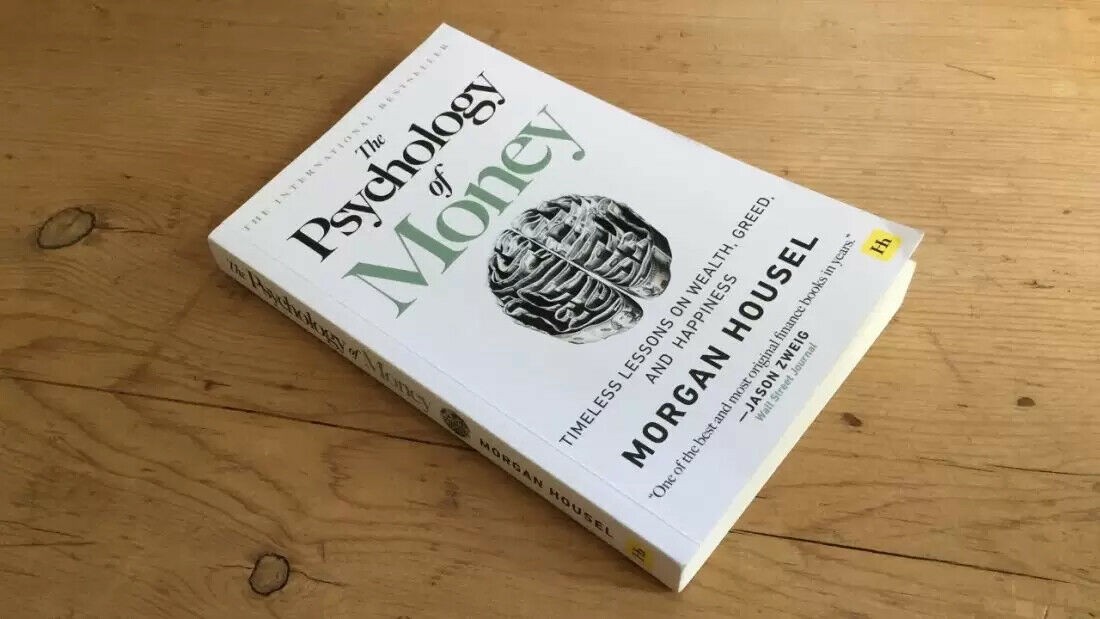Author: Morgan Housel
Published: 2020
Genre: Personal Finance / Psychology
Introduction
Money is one of the most powerful forces in our lives, yet our relationship with it is often irrational, emotional, and deeply personal. In The Psychology of Money, Morgan Housel masterfully blends storytelling with behavioral finance, revealing that managing money is less about complex formulas and more about understanding human behavior.
Rather than offering quick-fix tips or rigid investment rules, Housel focuses on timeless principles that influence how we think, spend, save, and invest. This book isn’t just about wealth creation—it’s about developing the right mindset to handle money wisely over a lifetime.
Core Premise
Housel’s central argument is simple yet profound: Financial success is not determined solely by knowledge or intelligence, but by behavior. The way we deal with money—our patience, discipline, risk tolerance, and emotional control—plays a far greater role in our long-term wealth than technical skills.
This means that even if you know all the right investment strategies, you can still fail financially if you let greed, fear, or impatience control your decisions. Conversely, someone with limited financial knowledge but a disciplined, long-term mindset can achieve remarkable results.
Key Themes & Lessons
- We All See Money Differently
Housel emphasizes that people’s financial decisions are shaped by their personal life experiences. If you grew up during an economic boom, you might view risk differently than someone who lived through a financial crisis. Understanding this helps explain why intelligent people can have wildly different approaches to investing. - Luck & Risk Matter More Than We Think
Success is not solely the result of hard work; luck plays a huge role. Similarly, risk can derail even the most careful plans. Housel illustrates this with examples from business leaders, reminding readers to stay humble and avoid assuming that what worked for someone else will work for them. - The Power of Compounding
Housel highlights that wealth often grows slowly and quietly through the power of compounding. Warren Buffett’s fortune, for example, comes largely from investing consistently over decades, not from making one lucky trade. The key takeaway: start early and be patient. - The Importance of “Enough”
One of the most striking chapters discusses the danger of constantly chasing more. Many financial disasters occur when people risk what they already have to get something they don’t really need. Learning when you have “enough” is critical to financial peace. - Saving is More Powerful Than Income
High earnings mean little if your spending grows just as fast. Housel argues that building wealth depends far more on saving habits than on income levels. Controlling lifestyle inflation is one of the surest paths to financial independence.
Writing Style
Housel’s writing is crisp, engaging, and free from financial jargon. He uses short chapters, each filled with memorable anecdotes and real-world examples—from Ronald Read, a janitor who amassed millions, to business tycoons who lost fortunes due to overconfidence. This makes the book accessible to both beginners and experienced investors.
Who Should Read It?
This book is for anyone—whether financially savvy or not—who wants to improve their relationship with money. It’s especially valuable for young professionals, new investors, and those prone to emotional decision-making in the markets. Even seasoned investors will find refreshing perspectives that challenge conventional wisdom.
Final Thoughts
The Psychology of Money is not a “how-to” manual; it’s a guide to thinking more wisely about money. By focusing on behavior over technical skills, Morgan Housel teaches timeless lessons that can help readers build not just wealth, but financial peace of mind.
The main message is clear: Financial success comes from patience, humility, and emotional control, not from chasing the hottest stock or predicting the next big trend.
Rating: ★★★★★ (5/5) – A must-read for anyone who wants to master the emotional side of personal finance.

